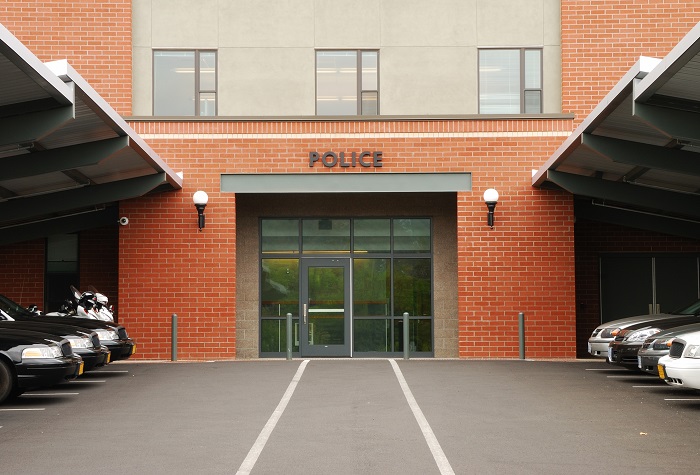By Dr. Jarrod Sadulski, Faculty Member, Criminal Justice at American Military University
Police officers are often exposed to a high level of trauma that can negatively affect their ability to perform their job. As a result, police agencies spend a great deal of money and time conducting background investigations and psychological screenings of police candidates. The unique and stressful circumstances to which officers are commonly exposed during their careers make such screening mandatory.
In addition to hiring officers who are suitable for police work, police departments and agencies have an important role in maintaining officer health and wellness. The need to make resources available to officers who routinely experience traumatic events in the field is often overshadowed by the complex and dynamic factors that police administrators handle every day.
[Free Download: Understanding and Managing Law Officer Stress]
One common resource for police officers are employee assistance programs (EAP). EAPs are important and should be promoted by police agencies. Since every officer is different and not everyone will come to their police agency if they are unable to sleep or if stress is having an adverse impact on their lives, multiple options should be made available to police officers through their agency.
Officers Are Encouraged to Address Traumatic Experiences
Officers who have experienced trauma should be encouraged to address the problem. They could seek professional help, but research has shown that police officers are commonly reluctant to go to outside psychological services.
[Related: Taking the First Steps to Healing from PTSI]
Discussing trauma-related stress with peer support officers who have had similar experiences can be a successful alternative. For example, officers are more willing to speak about traumatic events with fellow officers. They have built a level of trust with these officers on the job and believe their discussions will remain confidential. This belief reflects the importance of having an effective peer support program.
[Related: Promoting Police Resiliency through Peer Support]
A second option is for officers to talk to their own family members. For example, officers affected by traumatic experiences on the job could speak with sympathetic family members about the cumulative emotional baggage they carry over from police work.
[Related: Five Ways to Promote Officer Resilience]
In addition, there are other strategies that police departments and agencies can implement to help officers address the adverse effects of job-related stress. Some examples include:
1) Have Supervisor Training
Training field supervisors to recognize adverse stress reactions and signs of chronic stress gives them the ability to identify trauma or stress-related challenges in their subordinates. They can then provide troubled officers with resources and support, including a change in zone assignment, time off to resolve an acute stressor, or more formal support such as professional counseling.
Supervisors who are trained to detect signs that officers are not coping well with stress will be able to help their officers perform better on the job. They may also help those officers avoid additional psychological, physical or family problems.
2) Hold Supervisor-Subordinate Meetings
Supervisors could hold supervisor-subordinate meetings, aligned with quarterly employee reviews, where stress management is discussed. Talking about stress management during employee reviews provides an opportunity for the trained supervisor to encourage an honest discussion of any stress problems subordinates may be experiencing.
Such a discussion opens the door for an officer who struggles to reach out for support in a non-punitive environment. It also provides an opportunity for supervisors to identify a potential stress problem before there are any adverse stress reactions that could affect the officer’s life or career.
3) Align Officers’ Strengths with Their Assignments
Police administrators can match officers’ strengths with their specific assignments. Accommodating an officer’s every preference would be impractical. But placing officers in zones or in road patrol assignments that they enjoy can reduce stress and make a long-term positive impact on the officers.
4) Support Police Families
Police departments and agencies should emphasise their support for police families as a way to reduce stress. They can promote support organizations where officers’ spouses can come together either from the same agency or from neighboring agencies.
Spousal support organizations can foster collaboration among police families. They can also provide insight into the stressors officers commonly experience and into spouses’ experiences from being married to police officers.
[Related: Managing Police Stress to Strengthen Relationships at Home]
Offering counseling to spouses following an officer’s traumatic event might also be effective. When police families cope well with stress, it is more likely that the officers will remain focused while on duty.
5) Create a Framework of Incentives
Police departments can create incentives to promote officers’ mental health. These incentives could include completing voluntary stress management courses while off duty, participating in an exercise program or in stress-reduction activities such as yoga.
Although providing paid time off as an incentive to engage in a wellness program could result in budgetary or administrative concerns, such an incentive reduces the risk of agencies losing officers due to burnout and frequent absences.
Police work is one of the most stressful careers because it often involves exposure to trauma. Police departments play an important role in helping officers effectively manage emotional stress and trauma. When police agencies provide their officers with support and resources, they can greatly improve those officers’ stress and mental health.

Based on his research, Jarrod is currently writing a book on effectively managing police stress through a successful police career, which covers in further detail the physiological effects of police stress and how stress can be managed. He has 20 years of policing experience between both federal and local law enforcement. To contact him, email IPSauthor@apus.edu.

Comments are closed.